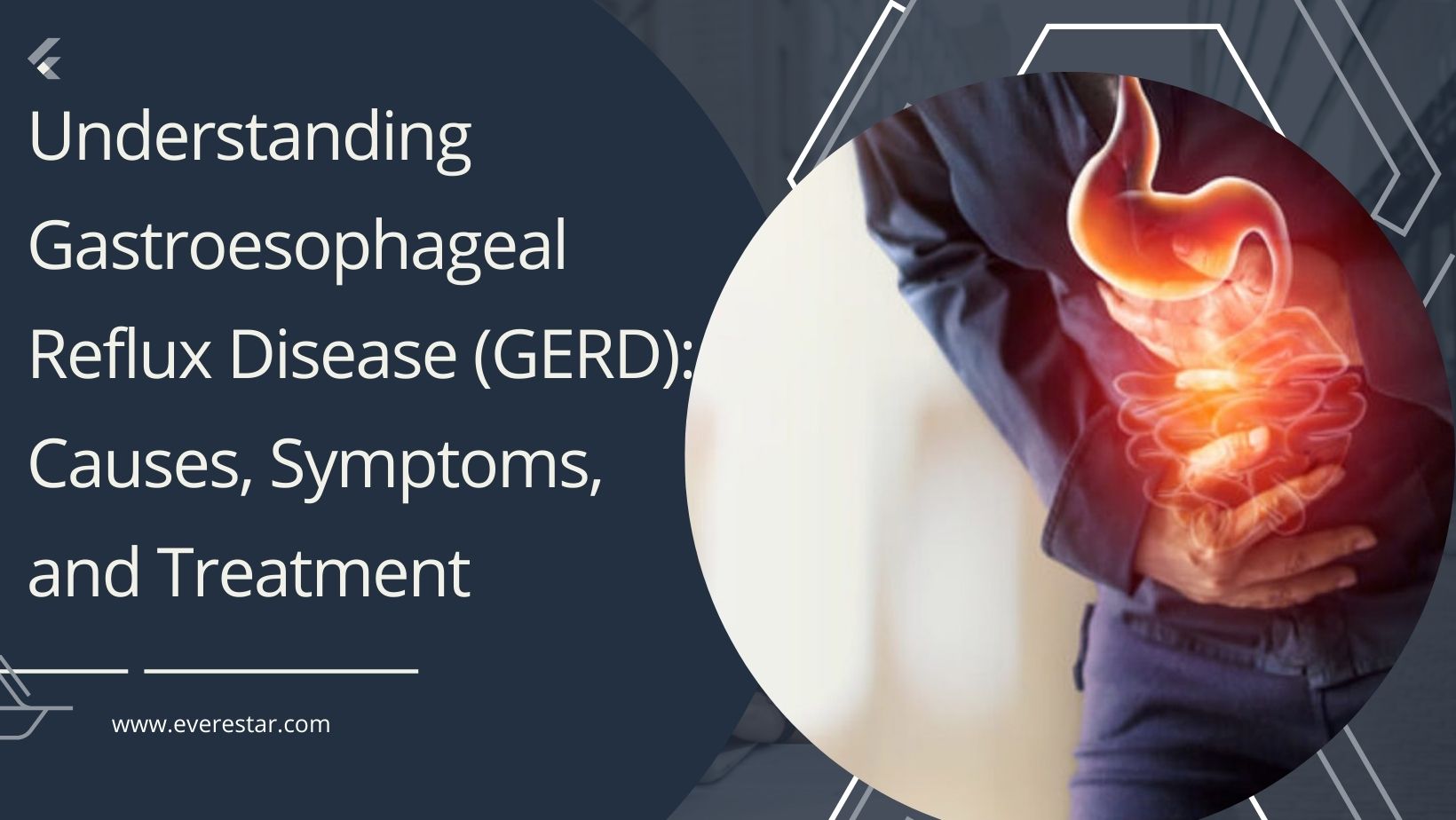Gastroesophageal Reflux Disease (GERD) is a chronic condition characterized by the backflow of stomach acid into the esophagus, causing irritation and inflammation. This common digestive disorder can lead to various symptoms and complications if left untreated. In this blog post, we will delve into the causes, symptoms, diagnosis, and treatment options for GERD.
Causes of GERD:
Weak Lower Esophageal Sphincter (LES):
The LES is a ring of muscle that acts as a valve between the esophagus and stomach. When it weakens or relaxes inappropriately, stomach acid can flow back into the esophagus, causing GERD.
Hiatal Hernia:
A hiatal hernia occurs when the upper part of the stomach protrudes through the diaphragm into the chest cavity. This displacement can contribute to the development of GERD.
Abnormalities in Esophageal Contractions:
Disorders that affect the normal rhythmic contractions of the esophagus (peristalsis) can contribute to GERD.
Symptoms of GERD:
Heartburn:
A burning sensation in the chest or throat is the most common symptom of GERD. It often occurs after eating, especially when lying down.
Regurgitation:
The sensation of stomach contents, including acid, flowing back into the mouth or throat can accompany GERD.
Chest Pain:
Chest pain that may mimic heart-related pain can occur, leading to unnecessary anxiety and confusion.
Difficulty Swallowing (Dysphagia):
GERD can cause narrowing of the esophagus due to inflammation, making it difficult to swallow.
Chronic Cough and Sore Throat:
Stomach acid irritating the throat can result in a persistent cough and sore throat.
Diagnosis of GERD:
Clinical Evaluation:
A healthcare professional will assess the patient’s medical history and symptoms to make an initial diagnosis.
Endoscopy:
A thin, flexible tube with a camera (endoscope) is used to examine the esophagus and stomach, identifying any inflammation or abnormalities.
pH Monitoring:
This test measures the acidity in the esophagus over a 24-hour period, providing valuable information on the frequency and duration of acid reflux.
Esophageal Manometry:
This test measures the strength and coordination of esophageal contractions, helping to identify abnormalities.
Treatment Options:
Lifestyle Modifications:
- Dietary changes, including avoiding acidic and spicy foods.
- Elevating the head of the bed while sleeping.
- Maintaining a healthy weight and avoiding tight clothing.
Medications:
- Proton pump inhibitors (PPIs) to reduce stomach acid production.
- H2 blockers to decrease acid production.
- Antacids for quick relief of symptoms.
Surgical Interventions:
In severe cases or when medications are ineffective, surgical procedures like fundoplication may be considered to strengthen the LES.
Conclusion:
GERD is a chronic condition that requires careful management to alleviate symptoms and prevent complications. Individuals experiencing persistent symptoms should seek medical advice for an accurate diagnosis and personalized treatment plan. With a combination of lifestyle modifications, medications, and, if necessary, surgical interventions, those with GERD can lead a comfortable and symptom-free life.


